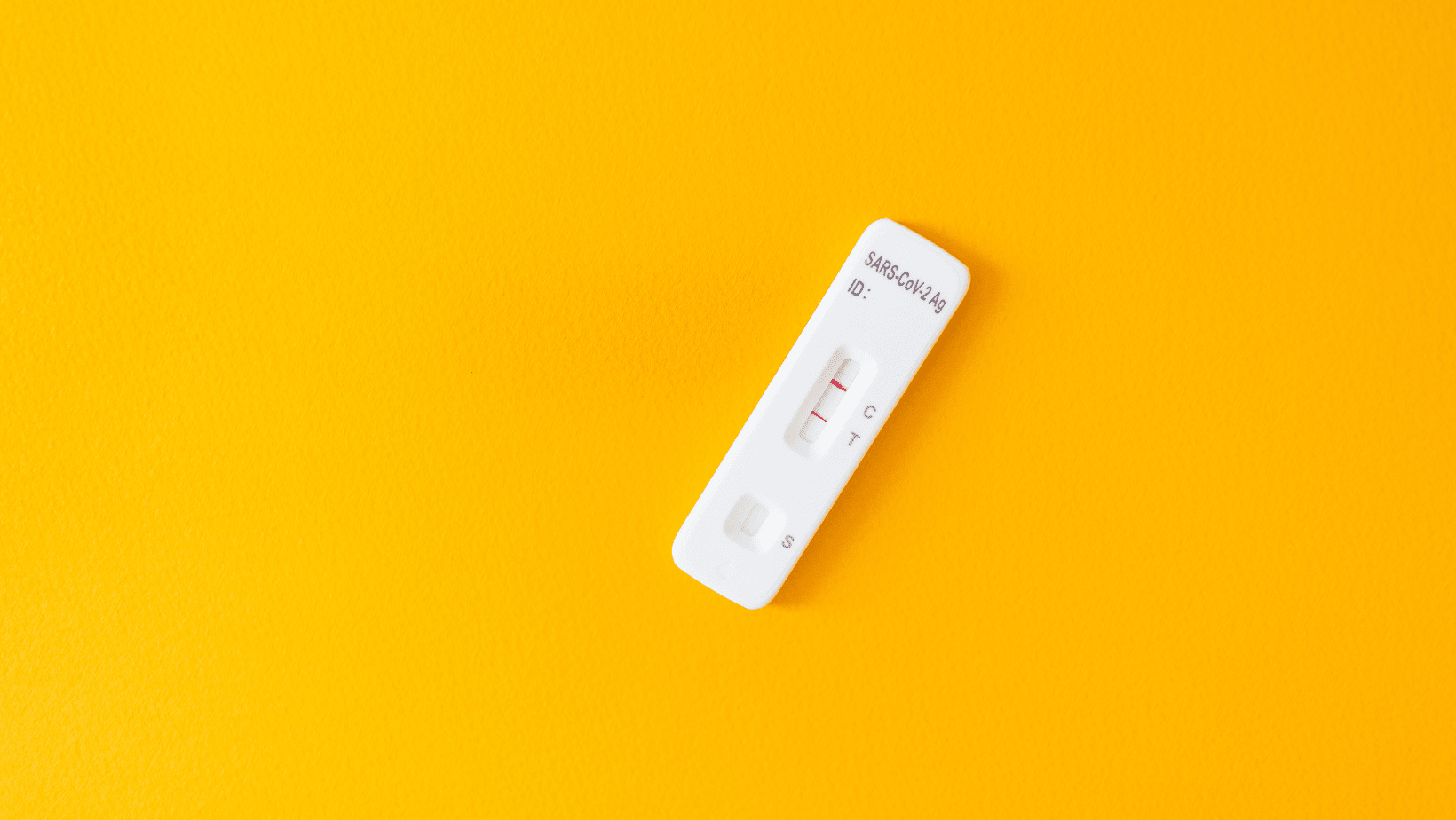Long Covid and your sex life

As a recent-ish Cosmo article so pointedly asserts, Covid-19 and its longer term effects “can be an unbelievable cockblock.”
As if dealing with a symptomatic bout of Covid-19 wasn’t bad enough, many of us are left to cope with the reality of lingering symptoms, even once the contagion itself has long since dissipated. It’s hardly surprising that these prolonged effects can dampen one’s sex life.
The skinny on long (and medium!) Covid
Covid can present itself in countless different ways, taking its toll in the form of longterm mental and physical effects—from hair loss, to mouth ulcers, or loss of smell and taste. “Long Covid” can leave you feeling out of shape, out of sorts, and out of breath, sometimes long after the supposed “10-day” initial recovery period.
Most of us have heard all about the perturbing effects of “long Covid,”defined as experiencing “physical or psychological symptoms more than 12 weeks after getting COVID-19.” People who have been hospitalized during recovery appear to be at greater risk of these after effects, which can include over 100 different symptoms.
And, to make matters more complex, though you may not end up with a debilitating case of long Covid that leaves you bedridden, it’s way more common than most people realize to take multiple weeks to fully recover—a condition slowly gaining recognition as “medium COVID.”

A 2021 survey by the Office for National Statistics in Britain polled more than 20,000 participants who’d tested positive for Covid-19 in the previous year and found that one in five reported experiencing symptoms after five weeks. At 12 weeks, the number was still 13.7% (almost one in seven). The most common symptoms experienced at five weeks were fatigue (11.8%), cough (11%), headache (10%), muscle pain (7.7%), and loss of taste and smell (6.3%). At 12 weeks, the prevalence of symptoms was just slightly lower.
Especially given the status quo messaging from health authorities, Covid symptoms that last for weeks can come as a surprise. In December 2021, the Centers for Disease Control and Prevention announced that those who test positive for the coronavirus can stop isolating after just five days if they’re symptom-free. But this recommendation is focused on the period during which a person is thought to be contagious, and doesn't mention anything about lasting or recurring symptoms beyond this period—so it can easily have the effect of suggesting that most people recover pretty quickly.
But many Covid survivors can experience symptom relapses at any point in time, and these symptoms can really range in severity.
Who’s feeling sexy?!
Longterm Covid and your sex life
For many Covid survivors, getting back to normal means being able to get it on again.
“Sex is vital to feeling alive,” explains psychosexual therapist Silva Neves. “It is psychologically a major component of our excitement and zest for life. Sex is imperative to self-connection.”
While sex and intimacy are undeniably among our basic needs, it’s not hard to understand how they can be relegated to the back-burner when you’re coping with chronic Covid.

While women’s sexual health is most often affected by the aspects of the virus that increase stress while diminishing body confidence (i.e., due to temporary hair loss), energy levels, and libido, some men are prone to even more direct sexual health repercussions. For instance, some men start developing erectile dysfunction (ED) after their Covid-19 infection. Studies show that men are six times more likely to develop problems getting an erection post Covid. Other research shows a whole slew of symptoms caused by Covid that can have an impact during sex, including damage to the testis, testicular pain or swelling, difficulty climaxing, diminished libido, lower testosterone, and urinary problems. Yey, am I right?
Keep calm and masturbate
Those who aren’t yet well enough to attempt sex with their partners—and/or who simply value solo sex in its own right—can use masturbation as a way of feeling alive again. When they feel well enough, of course. Sexual stimulation is an incredible way to get back in touch with your body (and yourself!). After all, masturbation and orgasms have been proven to greatly reduce anxiety and stress.
“The brain chemicals involved in having an orgasm (serotonin, dopamine, endorphins and oxytocin) are what we call the feel-good hormones,” points out Neves. “Oxytocin (the calming hormone) and endorphins (the pain relief hormones) are particularly helpful for increasing sexual desire during illness.”
Be kind and patient with yourself
Moderate exercises like walking or gentle yoga can help, as well as trigger a release of those aforementioned pleasure hormones. Lifestyle changes like healthy eating, quitting smoking, and getting ample sleep can also help. Communicating openly with your partner about any anxieties you may have can also make a world of difference. Open up about what’s going on with your sex drive and your energy levels, as well as any other symptoms you may be feeling are impacting your will/ability to experiencepleasure. If you know you just need a bit more time to recover, express that. Patience is a mutual commitment, after all.

Ultimately, loving yourself means being patient with your body’s process, and honoring and respecting its needs—even when that means delaying sex for a while (or exploring sex differently). Covid leaves many of us without a choice but to be patient with ourselves—perhaps the best we can do is find the blessing there. <3